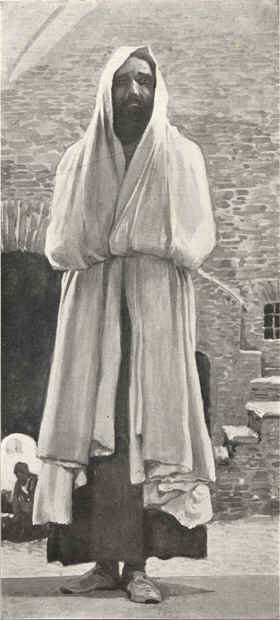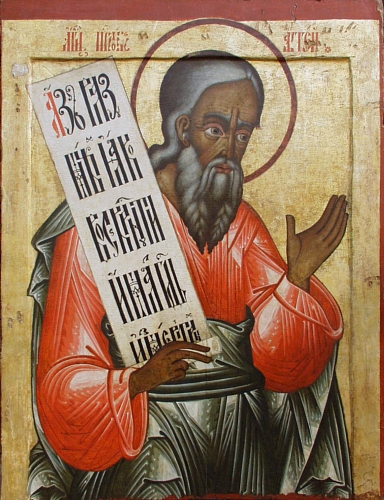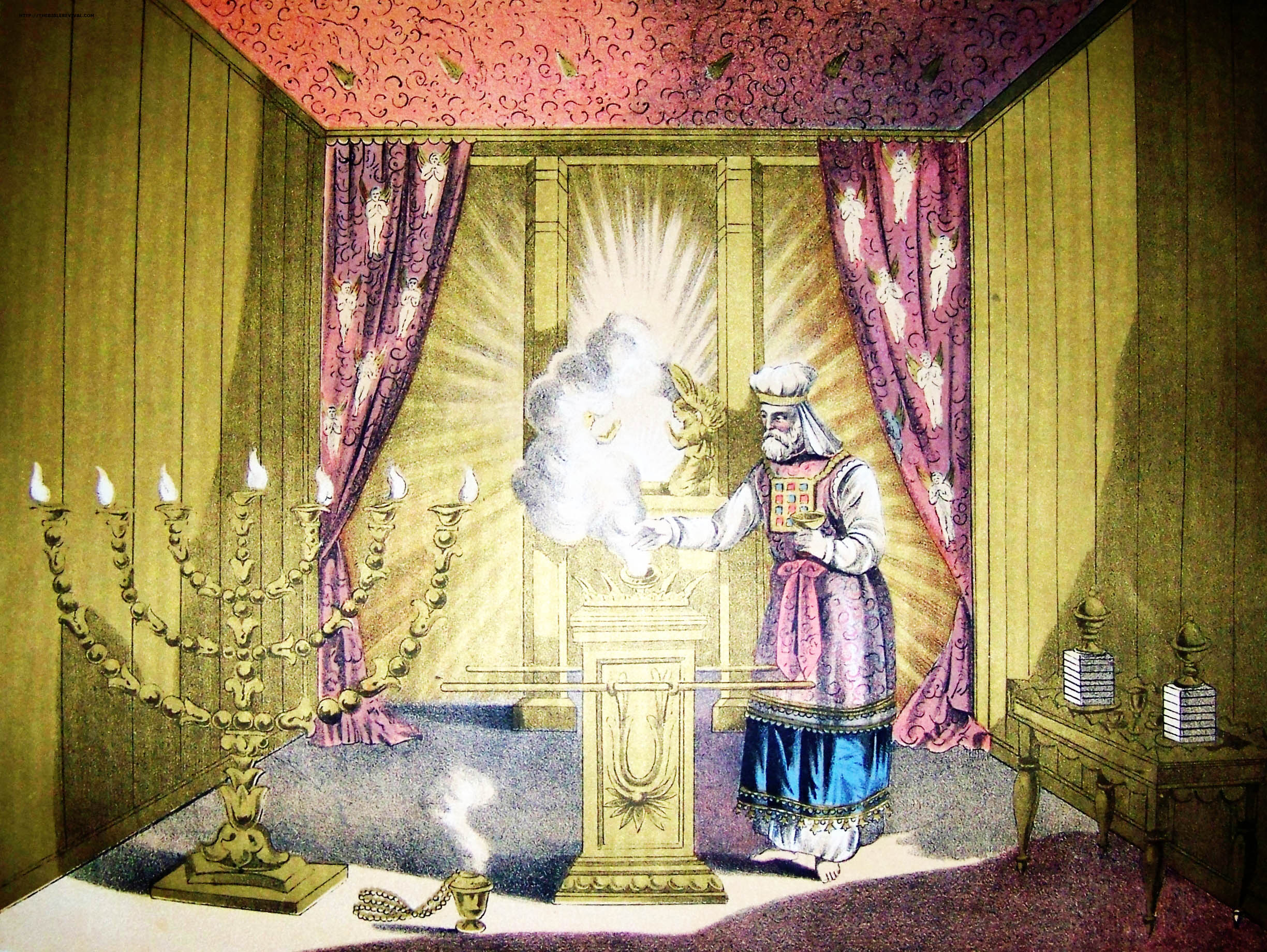|
Daniel In Rabbinic Literature
Allusions in rabbinic literature to the Biblical story of Daniel contain various expansions, elaborations and inferences beyond the text presented in the Book of Daniel. These stories are describing Jewish success in the Diaspora, where it was important to emphasize Jewish wisdom and statecraft during periods of foreign domination in order to strengthen the sense of worth and ethnic pride of the Jewish people. Ancestry According to rabbinical tradition Daniel was of royal descent; and his fate, together with that of his three friends, Hananiah, Mishael, and Azariah, was foretold by the prophet Isaiah to King Hezekiah in these words, "and they shall be eunuchs in the palace of the king of Babylon". According to this view, Daniel and his friends were eunuchs, and were consequently able to prove the groundlessness of charges of immorality brought against them, which had almost caused their death at the hands of the king. It was said of Daniel, "If he were in one scale of the balance ... [...More Info...] [...Related Items...] OR: [Wikipedia] [Google] [Baidu] |
Rabbinic Literature
Rabbinic literature, in its broadest sense, is the entire spectrum of rabbinic writings throughout Jewish history. However, the term often refers specifically to literature from the Talmudic era, as opposed to medieval and modern rabbinic writing, and thus corresponds with the Hebrew term ''Sifrut Chazal'' ( he, ספרות חז״ל "Literature f oursages," where ''Hazal'' normally refers only to the sages of the Talmudic era). This more specific sense of "Rabbinic literature"—referring to the Talmudim, Midrash ( he, מדרש), and related writings, but hardly ever to later texts—is how the term is generally intended when used in contemporary academic writing. The terms ''meforshim'' and ''parshanim'' (commentaries/commentators) almost always refer to later, post-Talmudic writers of rabbinic glosses on Biblical and Talmudic texts. Mishnaic literature The Midr'she halakha, Mishnah, and Tosefta (compiled from materials pre-dating the year 200 CE) are the earliest e ... [...More Info...] [...Related Items...] OR: [Wikipedia] [Google] [Baidu] |
Shir HaShirim Rabbah
Shir ha-Shirim Rabbah (Hebrew: שיר השירים רבה) is an aggadic midrash on Song of Songs, quoted by Rashi under the title "Midrash Shir ha-Shirim". It is also called Aggadat Hazita, from its initial word "Hazita", or Midrash Hazita. Simon Duran, ''Tashbatz'' 3:37 Origins Simon Duran, in quoting this midrash, says that it is a Judean aggadic collection. The sources which it uses directly are from the Jerusalem Talmud. No direct borrowing from the Babylonian Talmud appears, and, although it contains many interpretations and comments found in the Babylonian Talmud, most of them vary greatly in form, the agreement being confined to their contents. This agreement, moreover, may be explained on the ground that the comments and interpretations in question are very old, and were included both in the Babylonian Talmud and in the Palestinian sources used by the redactor of Shir haShirim Rabbah. Theories on composition and dating The date of composition of this midrash cannot b ... [...More Info...] [...Related Items...] OR: [Wikipedia] [Google] [Baidu] |
Genesis Rabba
Genesis Rabbah (Hebrew: , ''B'reshith Rabba'') is a religious text from Judaism's classical period, probably written between 300 and 500 CE with some later additions. It is a midrash comprising a collection of ancient rabbinical homiletical interpretations of the Book of Genesis (''B'reshith'' in Hebrew). It is expository midrash to the first book of the Torah, assigned by tradition to the amora Hoshaiah (or Osha'yah), who flourished in the third century in Roman Syria Palaestina. The midrash forms an aggadic commentary on Genesis, in keeping with the midrashic exegesis of that age. In a continuous sequence, broken only toward the end, the Biblical text is expounded, verse for verse, often word for word. Only genealogic passages and passages that furnish no material for exposition (as the reiterated account of Abraham's servant in ) are omitted. Simplicity Genesis Rabbah contains many simple explanations of words and sentences, often in the Aramaic language, suitable for th ... [...More Info...] [...Related Items...] OR: [Wikipedia] [Google] [Baidu] |
Malachi
Malachi (; ) is the traditional author of the Book of Malachi, the last book of the Nevi'im (Prophets) section of the Tanakh. According to the 1897 ''Easton's Bible Dictionary'', it is possible that Malachi is not a proper name, as it simply means "messenger".Malachi' at the Easton's Bible Dictionary The editors of the 1906 '' Jewish Encyclopedia'' implied that he prophesied after Haggai and Zechariah and speculated that he delivered his prophecies about 420 BC, after the second return of Nehemiah from Persia, or possibly before his return. No allusion is made to him by Ezra, however, and he does not directly mention the restoration of the Second Temple. Name Because the name ''Malachi'' does not occur elsewhere in the Hebrew Bible, some scholars doubt whether it is intended to be the personal name of the prophet. The form ''mal'akhi'' (literally "my '' malakh''") signifies "my messenger"; it occurs in Malachi 3:1 (compare to Malachi 2:7, but this form would hardly be appropri ... [...More Info...] [...Related Items...] OR: [Wikipedia] [Google] [Baidu] |
Haggai
Haggai (; he, חַגַּי – ''Ḥaggay''; Koine Greek: Ἀγγαῖος; la, Aggaeus) was a Hebrew prophet during the building of the Second Temple in Jerusalem, and one of the twelve minor prophets in the Hebrew Bible and the author of the Book of Haggai. He is known for his prophecy in 520 BCE, commanding the Jews to rebuild the Temple. He was the first of three post-exile prophets from the Neo-Babylonian Exile of the House of Judah (with Zechariah, his contemporary, and Malachi, who lived about one hundred years later), who belonged to the period of Jewish history which began after the return from captivity in Babylon. His name means "my holidays." The name Haggai, with various vocalizations, is also found in the Book of Esther, as a eunuch servant of the Queen. Life Scarcely anything is known of his personal history, with the book of Haggai offering no biographical details about his ancestry or anything else in his life outside the prophecies of 520 BCE. Haggai is ... [...More Info...] [...Related Items...] OR: [Wikipedia] [Google] [Baidu] |
Midrash Tehillim
Midrash Tehillim (Hebrew: מדרש תהלים), also known as Midrash Shocher Tov or the Midrash to Psalms, is an aggadic midrash to the Psalms. It has been known since the 11th century, when it was quoted by Nathan of Rome, by R. Isaac ben Judah ibn Ghayyat, and by Rashi, who quoted it in his commentary on I Samuel 17:49, and on many other passages. Names The midrash is also known as "Aggadat Tehillim" or "Haggadat Tehillim". Beginning in the 12th century, it was also called "Shocher Tov", because it begins with the verse Proverbs 11:27, "שחר טוב יבקש רצון ודרש רעה תבואנו". In addition, the Hebrew acronym for "Shocher Tov" (ש"ט) has been mistakenly expanded as "Shem Tov" or "Shem Tob", and the midrash referred to by that name. Editions The true midrash covers only Psalms 1–118, and this is all that is found either in the manuscripts or in the first edition. In the second edition, a supplement was added covering (with the exception of two psalm ... [...More Info...] [...Related Items...] OR: [Wikipedia] [Google] [Baidu] |
Mincha
Mincha ( he, מִנחַה, pronounced as ; sometimes spelled ''Minchah'' or ''Minḥa'') is the afternoon prayer service in Judaism. Etymology The name ''Mincha'', meaning "present", is derived from the meal offering that accompanied each sacrifice offered in the Temple (Beit HaMikdash). Origin The Hebrew noun ''minḥah'' () is used 211 times in the Masoretic Text of the Hebrew Bible, with the first uses referring to vegetable and animal offerings brought by Cain and Abel to God. Most other uses refer to a gift offering, made of grain, which could be offered at any time in the day. However, occasionally the Bible uses "mincha" to specifically refer to the afternoon Temple sacrifice. Rabbis in the Talmud debate whether the daily prayers have their origin in the behavior of the biblical Patriarchs, or in the Temple sacrifices. According to the first opinion, the Mincha prayer was originated by Isaac, who "went out to converse in the field", (according to this view) with God. ... [...More Info...] [...Related Items...] OR: [Wikipedia] [Google] [Baidu] |
Angel
In various theistic religious traditions an angel is a supernatural spiritual being who serves God. Abrahamic religions often depict angels as benevolent celestial intermediaries between God (or Heaven) and humanity. Other roles include protectors and guides for humans, and servants of God. Abrahamic religions describe angelic hierarchies, which vary by religion and sect. Some angels have specific names (such as Gabriel or Michael) or titles (such as seraph or archangel). Those expelled from Heaven are called fallen angels, distinct from the heavenly host. Angels in art are usually shaped like humans of extraordinary beauty. They are often identified in Christian artwork with bird wings, halos, and divine light. Etymology The word ''angel'' arrives in modern English from Old English ''engel'' (with a hard ''g'') and the Old French ''angele''. Both of these derive from Late Latin ''angelus'', which in turn was borrowed from Late Greek ''angelos'' (literally "mes ... [...More Info...] [...Related Items...] OR: [Wikipedia] [Google] [Baidu] |
Habakkuk
Habakkuk, who was active around 612 BC, was a prophet whose oracles and prayer are recorded in the Book of Habakkuk, the eighth of the collected twelve minor prophets in the Hebrew Bible. He is revered by Jews, Christians, and Muslims. Almost all information about Habakkuk is drawn from the book of the Bible bearing his name, with no biographical details provided other than his title, "the prophet". Outside the Bible, he is mentioned over the centuries in the forms of Christian and Rabbinic tradition. Name The name Habakkuk, or Habacuc, appears in the Hebrew Bible only in Habakkuk 1:1 and 3:1. In the Masoretic Text, it is written in he, חֲבַקּוּק (Standard ''Ḥavaqquq'' Tiberian ''Ḥăḇaqqûq''). This name does not occur elsewhere. The Septuagint transcribes his name into Greek as (''Ambakoum''), and the Vulgate transcribes it into Latin as ''Abacuc''. The etymology of the name is not clear, and its form has no parallel in Hebrew. The name is possibly relat ... [...More Info...] [...Related Items...] OR: [Wikipedia] [Google] [Baidu] |
Georgian Psalters MSS, 13-15 Cc
Georgian may refer to: Common meanings * Anything related to, or originating from Georgia (country) ** Georgians, an indigenous Caucasian ethnic group ** Georgian language, a Kartvelian language spoken by Georgians **Georgian scripts, three scripts used to write the language **Georgian (Unicode block), a Unicode block containing the Mkhedruli and Asomtavruli scripts **Georgian cuisine, cooking styles and dishes with origins in the nation of Georgia and prepared by Georgian people around the world * Someone from Georgia (U.S. state) * Georgian era, a period of British history (1714–1837) ** Georgian architecture, the set of architectural styles current between 1714 and 1837 Places *Georgian Bay, a bay of Lake Huron *Georgian Cliff, a cliff on Alexander Island, Antarctica Airlines *Georgian Airways, an airline based in Tbilisi, Georgia * Georgian International Airlines, an airline based in Tbilisi, Georgia *Air Georgian, an airline based in Ontario, Canada *Sky Georgia, an a ... [...More Info...] [...Related Items...] OR: [Wikipedia] [Google] [Baidu] |
High Priest Of Israel
High Priest ( he, כהן גדול, translit=Kohen Gadol or ; ) was the title of the chief religious official of Judaism from the early post- Exilic times until the destruction of the Second Temple in Jerusalem by the Romans in 70 CE. Previously, in the Israelite religion, including during the time of the kingdoms of Israel and Judah, other terms were used to designate the leading priests; however, as long as a king was in place, the supreme ecclesiastical authority lay with him. The official introduction of the term "high priest" went hand-in-hand with a greatly enhanced ritual and political significance bestowed upon the chief priest of the Israelites in the post-Exilic period, especially from 411 BCE onward due to the religious transformations brought about during the time of the Babylonian captivity and due to the lack of a Jewish king and kingdom. The high priests belonged to the Jewish priestly families that trace their paternal line back to Aaron—the first high prie ... [...More Info...] [...Related Items...] OR: [Wikipedia] [Google] [Baidu] |
Avodah Zarah
''Avodah Zarah'' (Hebrew: , or "foreign worship", meaning "idolatry" or "strange service") is the name of a tractate of the Talmud, located in ''Nezikin'', the fourth Order of the Talmud dealing with damages. The main topic of the tractate is laws pertaining to Jews living amongst Gentiles, including regulations about the interaction between Jews and "avodei ha kochavim", which literally interpreted is "Worshipers of the stars", but is most often translated as "idolaters", "pagans", or "heathen." Mishna The tractate consists of five chapters. The number of mishnayot is according to the standard numbering; however, different versions split up the individual mishnayot, or combine them, and the chapter breaks may vary, as well. Chapter One (nine mishnayot) deals with the prohibition of trade with idolaters around their festivals, such as Saturnalia and Kalenda (so as not to be complicit in the festive idolatry) and with the items that are forbidden to be sold to idolaters (w ... [...More Info...] [...Related Items...] OR: [Wikipedia] [Google] [Baidu] |







